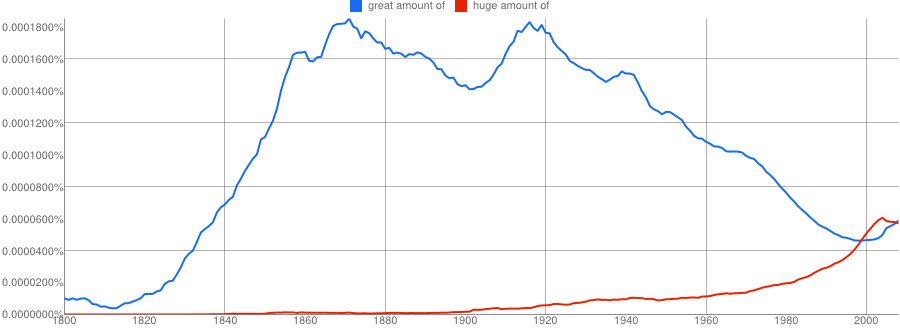Is "huge" slightly informal?
In the following sentence,
First, some people insist that Japan doesn’t need to adopt [an] austerity policy because it has a huge amount of assets at home and abroad.
I felt the word "huge" was inappropriate, thinking that it was too informal for this context. (Whereas if someone said "OMG, I have a bloody huge hangover", "huge" wouldn't be too informal)
However, meaning 1 of huge in wiktionary and dictionary.com don't describe it as slangy or informal.
Am I mistaken in thinking that it's informal? Perhaps I only think it's informal because it's a popular word in informal speech because you can lengthen the "u".

